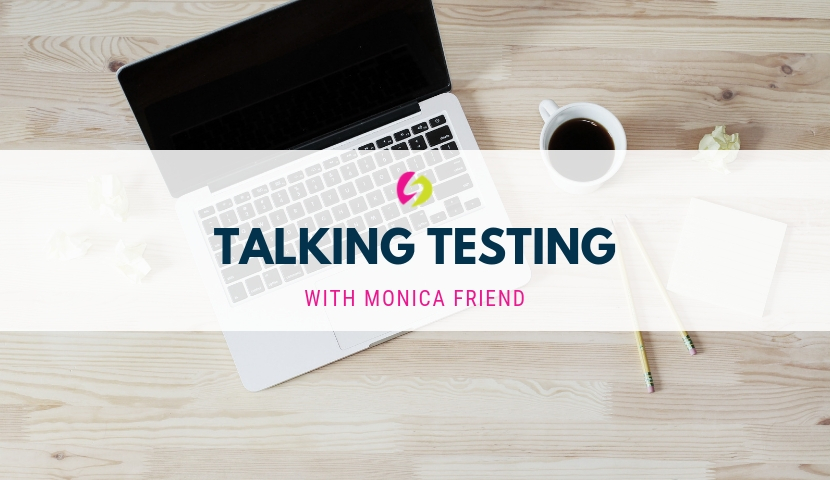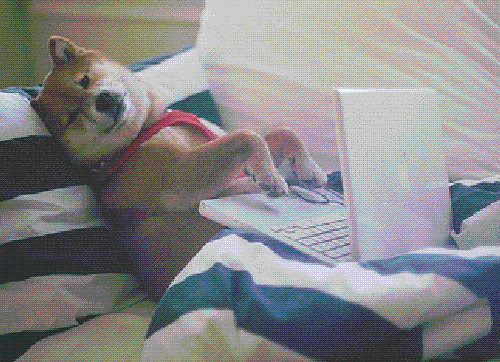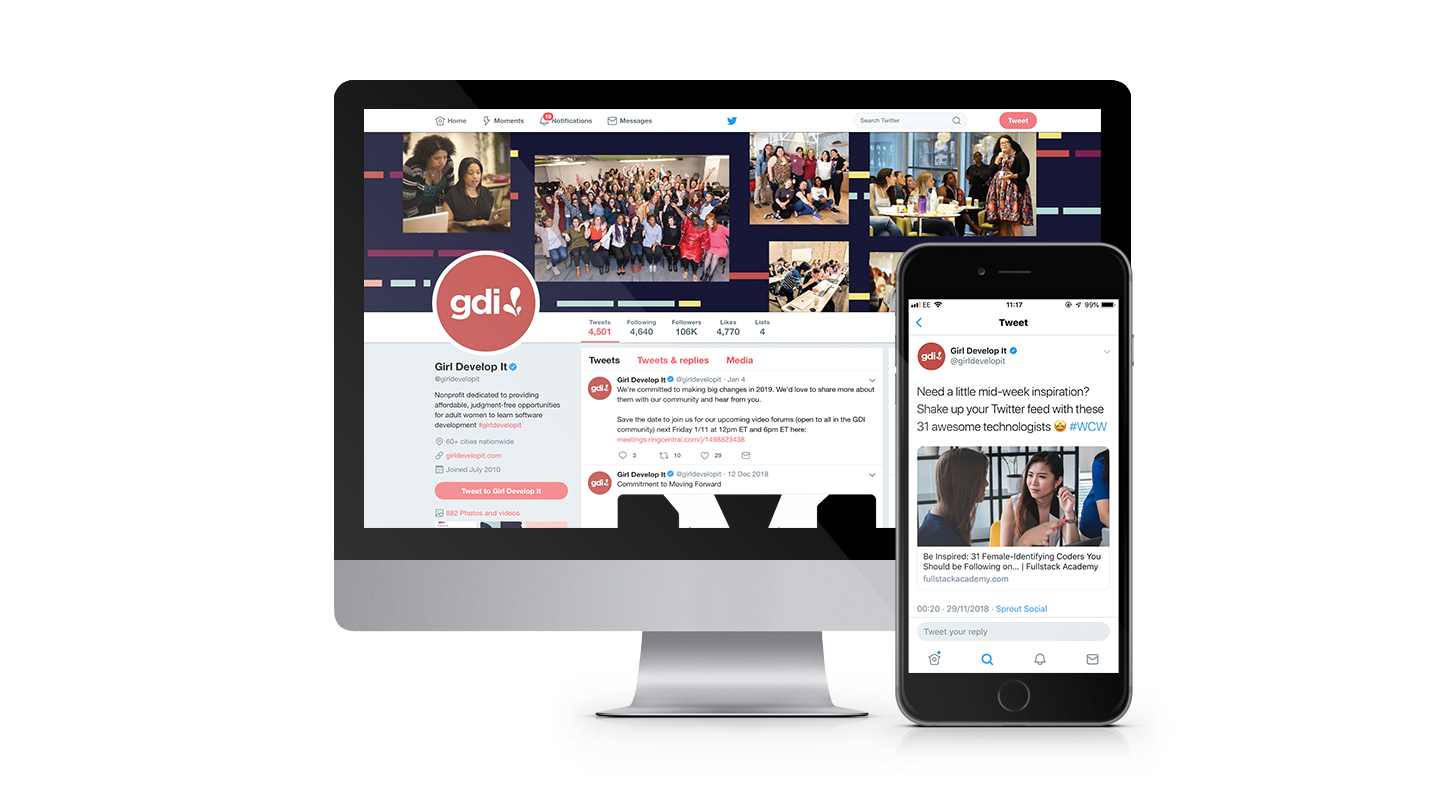Talking Testing with Michael Bolton
Please can you introduce yourself and give us a brief overview of current role?I’m Michael Bolton. No, not the singer; no, not the guy from Office Space. I ...
-February 18, 2019

In another exciting “Talking Testing” interview, I caught up with Monica Friend to learn about her career in testing!
Hello! My name is Monica A Friend and I hail from Chicago, IL. There are three things to know about me: yes, that is my real name, my ultimate goal is to meet a sloth in real life, and I am very passionate about testing! I currently work as a QA Engineer where I own the testing of several new products in need of manual and automated testing. As part of my role, I also work as a mentor to help educate developers and product owners on testing standards and best practices!
Not as big of an adjustment as one might think! I had worked 100% remotely about 5 years ago and hated it. After about 6 months, I went back to working in an office. I hadn’t realized how much discipline working remotely required until I read “REMOTE: Office Not Required”. Simple things like establishing a morning routine, having a dedicated workspace, and actually getting out of pajamas really do make a huge difference! Previous jobs allowed me to work from home whenever it was needed and it gave me a taste of what remote life could be like, so when I decided to work remotely full time it was a pretty smooth transition. I’d say the biggest adjustment I’ve had to make is making sure I have coffee stocked at home all the time.

Excellent question! I do really enjoy being able to make my own schedule and to be able to work from where ever I feel the most effective. Some days I work from home, some days from coffee shops, some days from co-working spaces. It all depends on how I’m feeling! I also have the opportunity to work from whatever geographical location I would like! If I plan on traveling anywhere, I know that I can work while traveling and not feel pressured to rush through my trip. Working remotely is also a huge boon for my mental health. Having a quiet, safe space to work from without having to leave my home is sometimes necessary and I no longer feel like I need to justify when I need to work from home because it’s part of the gig!
The downside to working remotely is that it can feel isolating at sometimes. Coming from an environment where you can just stand up and go talk to a coworker, working solo can be a lonely experience. I combat this by being apart of multiple slack communities, including the testers.io, Women in Tech, and Chicago Web Friends groups! Even though I’m not very active in these channels, it’s nice to have the channels open for support, background noise, or emergency happy gifs. Most of these communities also have a #remote channel for those who are working remotely! Another potential downside of working remotely is you have to be very communicative to the point of feeling like you are over communicating. Working remotely, you lose things like desk-side or “bump into someone on the way to the bathroom” conversations. Your verbal and written communication is put to the test. I almost always take calls with my camera on so my teammates can see my facial expressions as well as hear my voice and spend not an insignificant amount of time crafting emails/issues/chats to clearly effectively communicate with my team. Gifs and emojis are also your friend!

via Giphy
Under the right circumstances, yes! For me, a huge plus side of working remotely is I am always able to find a safe, quiet space without having to pile on additional anxiety by requesting to work from home or remotely. I am also able to find time more easily for things like meditation breaks, journaling, or appointments.
I say that under the right circumstances, working remotely helps with mental health but it can be a double edged sword. If you are prone to isolating, then it’s very important to make sure you are only doing so when it is beneficial to you. For me, isolating too much can be detrimental to my emotional and mental health. I do regular self check-in’s to make sure I am aware of my current state and I acknowledge what my needs are that day. I’ve also found that text-based communication can be anxiety provoking due to the lack of non-verbal context. To combat this, I try my best to use video chats whenever possible and make sure my camera is on so that others can see my non-verbal cues.
If you have any concerns about working remotely and how it could affect your mental health, I would recommend checking in with your support system (therapist, general practitioner, friends, family, whomever you trust!) and ask for feedback.
Mental health insurance coverage can always be better. I have been very fortunate in the coverage my insurance providers but providing health insurance that covers mental health issues is still something that is often overlooked by most employers.
Thinking about a personnel perspective, I’ve found that understanding, trust, and empathy are key for creating an inclusive and safe environment. Asking questions like “Do you need tea and sympathy, advice, or some combination of both?” when I am frustrated or struggling shows me that a manager or coworker is willing to listen and willing let me cope with my current state in whatever way serves me best.
I originally got involved with these communities as a student and after being an active participant for a while, I decided to move more into a teacher/mentor sort of role. It was important for me to make that transition for a couple of reasons. The biggest reason is that I wanted to help others like myself have an opportunity to grow their skill set in a safe and inclusive environment. It’s an extremely rewarding experience to help someone learn a new skill or concept and it’s that experience that keeps me volunteering.
An unintended side effect of volunteering is that I have been able to make lasting connections in the community that I might not have been able to had I not decided to help out!

It is indeed a pretty interesting background! I graduated college with a Theatre Arts/Communications degree and had no idea what I was going to do “when I grew up”. I had recently moved to Chicago and got a temp job doing data entry at a startup called Groupon to help pay the bills until I could figure out what I wanted to do. This is where I first learned about HTML and basic markdown. I remember feeling so excited that I knew how to make text bold or italicized without using a text editor! Hungry for more, I began learning all about HTML, CSS, object oriented languages, and engineering best practices through online tutorials and local meetups.

As Groupon grew in size, more opportunities for mentorship and continued learning were made available to me and I eagerly looked for any occasion to flex my newfound muscles. While I was gaining so much knowledge, I still had no idea what I wanted to do. I knew I liked working in the tech industry, but I didn’t feel drawn to becoming a developer so what else was there for me? After working my way through several roles at Groupon, I was approached by the Test Engineering manager and asked if I would like join the test organization part time while I was deciding where to take my career next. I had always thought my opportunities were limited to being a developer or getting out of the field, so when I started learning more about testing, I was hooked! I loved every aspect about it. From learning how the product works under the hood to seeing the development lifecycle up close, it was like looking at engineering and tech through a whole new lense!
As I grew as a tester, I realized that there’s more to testing than just finding bugs, writing up test cases, and checking acceptance criteria. There’s this whole other world out there when you start to consider user empathy, risk analysis, and interpersonal communication. When you start combine all of these aspects into your testing, that’s when you begin to really tap into your potential as a tester and become an indispensable asset to your engineering organization.
If I hadn’t gotten into testing, I think I would probably be working in flower shop. I’ve discovered I have an affinity for raising plants and creating floral arrangements!
You can connect with Monica on LinkedIn here and you can see my latest Talking Testing blogs here.
Share this article...
Other Articles...
Please can you introduce yourself and give us a brief overview of current role?I’m Michael Bolton. No, not the singer; no, not the guy from Office Space. I ...
-February 18, 2019
This week I caught up with Syed Ali, for my “Talking Testing” blog series. Read on to find out more about his experience from everything to hands on Testing, teaching, ...
-January 25, 2019